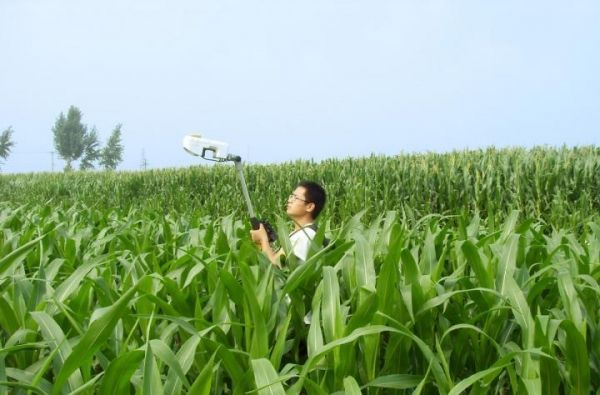Too much of a good thing can be a bad thing. That’s certainly true for nitrogen fertilizers.
Without enough nitrogen, crops don’t grow well. Yields are reduced significantly.
Applying too much nitrogen fertilizer, on the other hand, can hurt the environment. Nitrogen can enter the watershed, polluting aquatic ecosystems. Microbes can also convert the excess nitrogen into nitrous oxide, a greenhouse gas implicated in climate change.
“Managing nitrogen is vital for global food security,” says Yuxin Miao, an agronomist at the University of Minnesota. “It is also crucial for reducing pollution and climate change.”
Read more at American Society of Agronomy
Image: A student uses the GreenSeeker active canopy sensor to collect canopy reflectance data. The collected data will help determine the crop's nitrogen status. (Credit: Guohui Feng)


